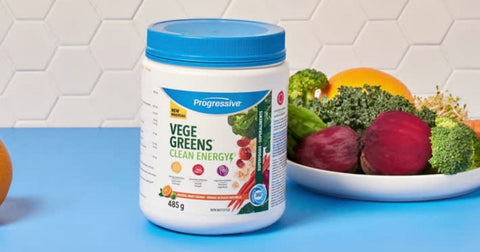Written by the Progressive Nutritional Education Team
No one will dispute that it’s better to get our nutrients from food, but our delightful off-spring don’t always co-operate when it comes to meal-time. And let’s face it, the best sources of nutrients to keep us healthy are not high up on the list of favourites for most kids. (Pass the seaweed, please!) What’s a concerned parent to do?
A 2015 review defined picky eating as:
- Low enjoyment of food
- Restricted food intake, especially of vegetables
- Unwillingness to try new foods
- Not enough food or an adequate variety of foods
- Strong food preferences (likes and dislikes)
Frequently, these habits lead parents to provide a different meal from the rest of the family. Other possible flags for picky eating include using distractions when eating, lengthy meal-times, or a child who drinks most of his or her energy intake. As a result of their limited diets, picky eaters can miss out on important vitamins, minerals, and macronutrients they need to support growth and health. Research has also shown that picky eaters eat less fibre, which may increase risk of constipation. [1]
Hidden treasures
Broccoli, kale, and spinach provide phytochemicals including beta carotene[2] and indole-3 carbinol to support the liver,[3] while the aforementioned seaweeds (kelp, spirulina, wakame) are great sources of trace minerals. [4] If you have trouble getting these on your child’s spoon, try blending them into a fruit smoothie or purée them to add to kid favourites like hamburgers.
Fill nutrient gaps
MultiVitamins for Kids can help. Along with a daily dose of vitamins and minerals, co-factors and enzymes that encourage optimal use by the body, the formula provides whole food concentrates and flax. Each dose also provides 5 mg of fish oil. Best of all, MultiVitamins for Kids comes in a delicious chewable tablet, so it won’t be a daily struggle to get them to take it. Depending on age, your child would chew one or two tablets.
Essential fats for healthy bodies
Research has shown that essential fats EPA and DHA from fish oil are critical not only during the childhood but throughout the whole life span.[5] Ultimate Fish Oil for Kids is a high potency, multi-source fish oil supplement designed to help nourish a developing body and mind. It features a blend of six cold water, wild caught fish oils including sardine, anchovy, mackerel, herring, tuna, and salmon. It is made entirely from all-natural ingredients and is completely free of artificial flavours, colours, sweeteners, and preservatives. Made with a natural orange flavour, this fish oil is delicious straight from the spoon – or hidden in a preferred drink!
References:
[1] Taylor, C., Wernimont, S., Northstone, K., & Emmett, P. (2015). Picky/fussy eating in children: Review of definitions, assessment, prevalence and dietary intakes. Appetite, 95, 349–359. https://doi.org/10.1016/j.appet.2015.07.026
[2] Lester, G. (2006). Environmental regulation of human health nutrients (ascorbic acid, β-carotene, and folic acid) in fruits and vegetables. HortScience : a Publication of the American Society for Horticultural Science, 41(1), 59–64. https://doi.org/10.21273/HORTSCI.41.1.59
[3] Si-qi Wang, Li-sha Cheng, Yun Liu, Ji-yao Wang and Wei Jiang, “Indole-3-Carbinol (I3C) and its Major Derivatives: Their Pharmacokinetics and Important Roles in Hepatic Protection”, Current Drug Metabolism (2016) 17: 401. https://doi.org/10.2174/1389200217666151210125105
[4] Miedico, O., Pompa, C., Tancredi, C., Cera, A., Pellegrino, E., Tarallo, M., & Chiaravalle, A. (2017). Characterisation and chemometric evaluation of 21 trace elements in three edible seaweed species imported from south-east Asia. Journal of Food Composition and Analysis, 64, 188–197. https://doi.org/10.1016/j.jfca.2017.09.004
[5] Schuchardt, J.P., Huss, M., Stauss-Grabo, M. et al. Significance of long-chain polyunsaturated fatty acids (PUFAs) for the development and behaviour of children. Eur J Pediatr 169, 149–164 (2010). https://doi.org/10.1007/s00431-009-1035-8




